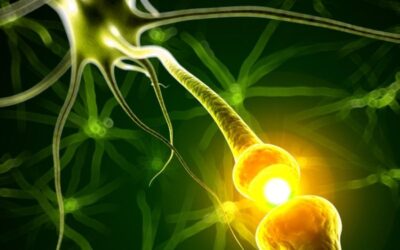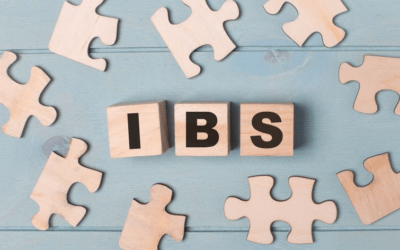Gut health may be a trendy buzzword, but for the estimated 10-15% of the population grappling with irritable bowel syndrome (IBS), it’s not just a hashtag – it’s a battlefield. Many people ask “How can I treat IBS?” Managing IBS symptoms such as bloating, cramping, diarrhoea and constipation are a struggle that those with IBS know all too well. But the tide is turning, with exciting new research illuminating the gut-brain connection and offering fresh weapons in the fight against IBS. See my other blogs for additonal information about IBS.
The microbiome
Let’s take a deep dive into the gut, starting with our microscopic allies – the mighty gut microbiome. Imagine a bustling metropolis teeming with trillions of bacteria, each vying for space and resources. In a healthy gut, these communities live in harmony, contributing to digestion, immunity and even mood. But in IBS, this harmony is disrupted, leading to inflammation and the all too familiar uncomfortable IBS symptoms.
Fermentable carbohydrates (FODMAPs)
One culprit in the IBS saga? Enter FODMAPs, a group of fermentable carbohydrates that some gut microbes feast on with gusto. This fermentation process produces gas, bloating, and discomfort. The low FODMAP diet, a cornerstone of IBS management, restricts these troublemakers, often bringing dramatic relief. But here’s the exciting part: research suggests we may soon be able to personalize FODMAP restrictions for even greater effectiveness. By analysing individual gut microbiomes, scientists can pinpoint the specific FODMAPs that are triggers, leading to more customized dietary protocols. Imagine a future where you ditch the blanket restrictions and enjoy a diverse, FODMAP-friendly feast tailor-made for your gut!
The gut-brain axis
Beyond FODMAPs, the gut-brain axis is another hotbed of research. Studies reveal a bi-directional communication network between the gut and brain. Stress, anxiety and depression can exacerbate IBS symptoms, while gut inflammation can even impact mood and cognitive function. This knowledge opens doors for novel therapeutic approaches, such as mindfulness and cognitive behavioural therapy, as powerful allies in managing IBS symptoms.
Pre- and probiotics
Research into prebiotics and probiotics is also gaining traction in the search into taming the IBS gut. Put simply, the prebiotics feed the good bacteria in our gut, whilst probiotics introduce reinforcements. Research suggests these gut-friendly foods and supplements may help restore balance and alleviate IBS symptoms. However, choosing the right ones and navigating the vast product landscape can be a challenge. Consulting a healthcare professional, such as an IBS Dietitian trained in FODMAPs is crucial for personalized recommendations.
An holistic approach to improve IBS symptoms
Many IBS sufferers feel there’s a link between their symptoms and the foods they eat and are desperate to tame their gut. However, restricting the diet without professional help can lead to nutritional deficiencies, especially when excluding whole food groups. Drastic dietary changes also make social situations difficult and can worsen mental health. The low FODMAP diet is an efficient way of identifying food triggers. But, it’s tricky to do alone though, so should always be supported with the skills and knowledge of an IBS Dietitian trained in FODMAPs. With support, sufferers can identify their triggers and improve their IBS symptoms. A skilled dietitian will provide practical ways to help fit the low FODMAP diet into your lifestyle and ensure that you still get a balanced diet. But, an holistic approach is best. Combining dietary changes with mindfulness, relaxation methods, exercise and pre- and probiotics can bring long-lasting positive results.
Conclusion
The future of gut health is brimming with possibilities. Personalized FODMAP restrictions, advanced microbiome analysis, gut-brain therapies and more targeted pre/probiotic therapy – these are just a few glimpses on the horizon. So, in answer to the question “How can I treat IBS?”, science is paving the way for a brighter gut-health future. Remember, managing IBS is a marathon, not a sprint. With a combination of dietary modifications, stress management, and potentially, the latest gut-friendly interventions, you can find IBS relief. Don’t hesitate to contact me if you’d like expert advice and support for your IBS. I’m an IBS Dietitian based in Cardiff, but consultations are online, so I can work across the UK. I offer a free initial telephone consultation, so why not arrange a call today.
Change your life in just three sessions
Need help to manage your IBS symptoms? I’m based in Cardiff, but work with IBS sufferers across the UK through online sessions. The vast majority of my clients have found that only three sessions are needed before they feel confident to move forward on their own. I will send you booklets, which have an extensive list of all the foods you can eat on the low FODMAP diet. I’m available for advice and support between sessions. Find out more about my IBS symptoms relief package. I offer a free initial telephone call for you to decide whether the low FODMAP diet is right for you. So give me a call or fill out the contact form.
Many of my clients say that working with a specialist IBS dietitian has been life-changing, and are finally managing to live more comfortable lives.
Read about previous client experiences and to help you decide it this is the right approach for you, see my webpage about IBS treatment.
Disclaimer: This blog is for information purposes only and does not substitute for professional medical advice. Please consult your healthcare provider for personalised diagnosis and treatment of IBS.




